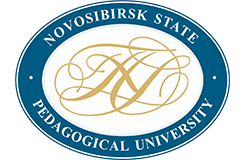Types of parent-child relationship and indicators of neuropsychological development of preschool children
DOI:
https://doi.org/10.32437/mhgcj.v3i1.94Keywords:
indicators of development, preschool age, neuropsychic development, parent-child relations, mental healthAbstract
Introduction: During the last 20 years, in Russia and in many EU countries, there has been significant change in the global social and cultural situation. Individualistic tendencies rose sharply and there is a widespread destruction of the sense of belonging. In this regard, the type of parent-child relationship is changing, which is one of the key dimension of the neuropsychological development of children. There is a logical question for psychologists, teachers and parents, what types of parent-child relationships are constructive, that is, they favor normal neuropsychological development of children of preschool age (6-7 years).
Purpose: The purpose of the present work is to investigate correlation between types of parent-child relationships and indicators of neuropsychological development of children, as well as identifying constructive types of parent-child relationships for the normal neuropsychological development of children.
Methodology: The study was conducted within the framework of the basic screening program (pre-school stage). The Order of the Ministry of health of the Russian Federation of 03.07.2000 ? 241 On approval of the Medical card of the child for educational institutions (together with the Instruction on the procedure of an accounting form ? 026/u-2000 (The Medical card of the child for educational institutions of preschool, primary, basic, secondary (complete) general education, primary and secondary vocational education, orphanages and boarding schools). Determination of the correspondence of neuropsychological development to the child's age was carried out according to the following indicators: thinking and speech; attention and memory; positive emotions and social contacts; sensorimotor development. Types of parental relationship was studied using the methodology of the Questionnaire “Parental relationship” (QPR), A.Y. Varga, V.V. Stolin. The sample was formed from 94 respondents who were screened in the framework of the basic screening program (preschool stage) at the health Center of the MC “Gubernia” in Novosibirsk. The study of determination of the type of parent-child relationship of 47 respondents (mothers) was conducted and the neuropsychic development of 47 children of preschool age in the families (6-7 years) was evaluated.
Results and Discussion: The data obtained indicate that different types of parent-child relationship such as “Cooperation” and “Symbiosis” positively interrelated with different indicators (attention and memory; the development of positive emotions and the presence of significant experiences in children) of the child's neuropsychological development. Such types of parent-child relationship as “Infantilism” and “Acceptance-rejection” negatively interrelated with such indicators of child's neuropsychological development as attention and memory; thinking, speech and positive emotions and social contacts.
Conclusion: Children in groups with a more “constructive” parental relationship type have higher cognitive scores and fewer behavioral problems. The materials of the study can be used by child psychologists in the evaluation of neuropsychological development of the child. The Bank of diagnostic techniques that quickly allow diagnosing the state of neuropsychic development of the child in relation to the type of parental relations and thereby increasing the effectiveness of its correction through work with parents is of practical importance
References
Feldstein, D.I. (2011). A Changing Child in Changing World: Psychological and Educational Problems of the New School. Psychology in Russia: State of the Art, 4, 383-396. DOI 10.11621/pir.2011.0026
Obukhova, L.F., Kotlyar, I.A. (2011). Predislovie: Razvitie. Socializaciya. Obrazovanie [Foreward: Development. Socialization. Education]. At the origins of development. Collection of scientific articles. Moscow: MGPPU, Russia. [In Russian].
Bolshunova, N.Ya, Ermolova, E.O. (2016). Possibilities of organizing education for preschool children in the forms of children's subculture. Procedia - Social and Behavioral Sciences, 233, 377-381. DOI 10.1016/j.sbspro.2016.10.162
Grusec, J.E., Danyliuk, T. (2019). Parents’ Attitudes and Beliefs: Their Impact on Children’s Development. In: Tremblay RE, Boivin M, Peters RDeV, eds. Tremblay RE, topic ed. Encyclopedia on Early Childhood Development. Retrieved from http://www.child-encyclopedia.com/parenting-skills/according-experts/parents-attitudes-and-beliefs-their-impact-childrens-development
The Order of the Ministry of health of the Russian Federation of 03.07.2000 ? 241. (2000). On approval of the Medical card of the child for educational institutions (together with the Instruction on the procedure of an accounting form ? 026/u-2000 (The Medical card of the child for educational institutions of preschool, primary, basic, secondary (complete) general education, primary and secondary vocational education, orphanages and boarding schools). Retrieved from https://sudact.ru/law/prikaz-minzdrava-rf-ot-03072000-n-241/ [In Russian].
Raygorodsky, D.Ya. (1998). Prakticheskaya psihodiagnostika: ucheb. posobie [Practical psycho-diagnostics: studies]. Samara: Bakhrakh, Russia, 1998. [In Russian].
Kniginoy, I. (Eds.). (1998). Enciklopediya psihologicheskih testov dlya detej [Encyclopedia of psychological tests for children]. Moscow: Scientific book, Russia. [In Russian].
Varga, A.Ya. (Eds.). (2006). Sovremennyj rebenok: enciklopediya vzaimoponimaniya [Modern Child: Encyclopedia of Understanding]. Moscow: United Humanitarian Publishing House (OIG): Pragmatics of Culture, Russia. [In Russian].
Filippova, G.G. (1999). Psihologiya materinstva: konceptual'naya model': monografiya [Psychology of motherhood: conceptual model]. Moscow: Institute of Youth, Russia. [In Russian].
Spivakovskaya, A.S. (2000). Psihoterapiya: igra, detstvo, sem'ya [Psychotherapy: play, childhood, family]. Moscow: April Press: KCMO-Press, Russia, 1, 304. [In Russian].
Holden, G.W. (1995). Parental attitudes towards child-rearing. Bronstein M. (Ed.). Handbook of parenting; Mahwah, NJ: Lawrence Erlbaum Ass., 359-392.
Shamshikova O.A., Gorbatovskaja E.A. (2020). Osobennosti psihicheskih processov u mladshih shkol'nikov s raznym urovnem shkol'noj uspevaemosti [Peculiarities of mental processes of primary schoolchildren with different levels of school excellence]. Razvitie cheloveka v sovremennom mire. – Human development in the modern world, 2, 7-29. [In Russian].
Elkonin, D.B. (Eds.). (2007). Detskaya psihologiya [Child psychology: studies]. Moscow: Publishing Center “Academy”, Russia. [In Russian].
Elkonin, D.B., Wenger, A.L. (Eds.). (1988). Osobennosti psihologicheskogo razvitiya detej 6-7-letnego vozrasta [Features of the psychological development of children 6-7 years of age]. Moscow: Pedagogy, Russia. [In Russian].
Obukhova, L.F. (2013). Vozrastnaya psihologiya: uchebnik dlya bakalavrov [Age psychology: a textbook for bachelors]. Moscow: Publishing Yurayt, Russia. [In Russian]









 E-mail us: viktor.vus@mhgcj.org
E-mail us: viktor.vus@mhgcj.org 